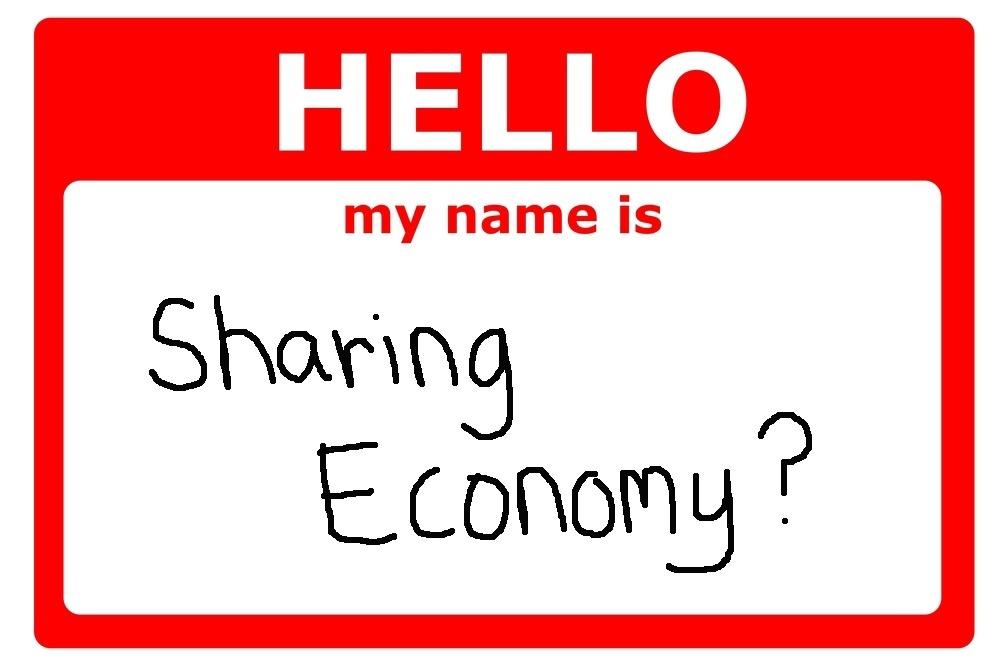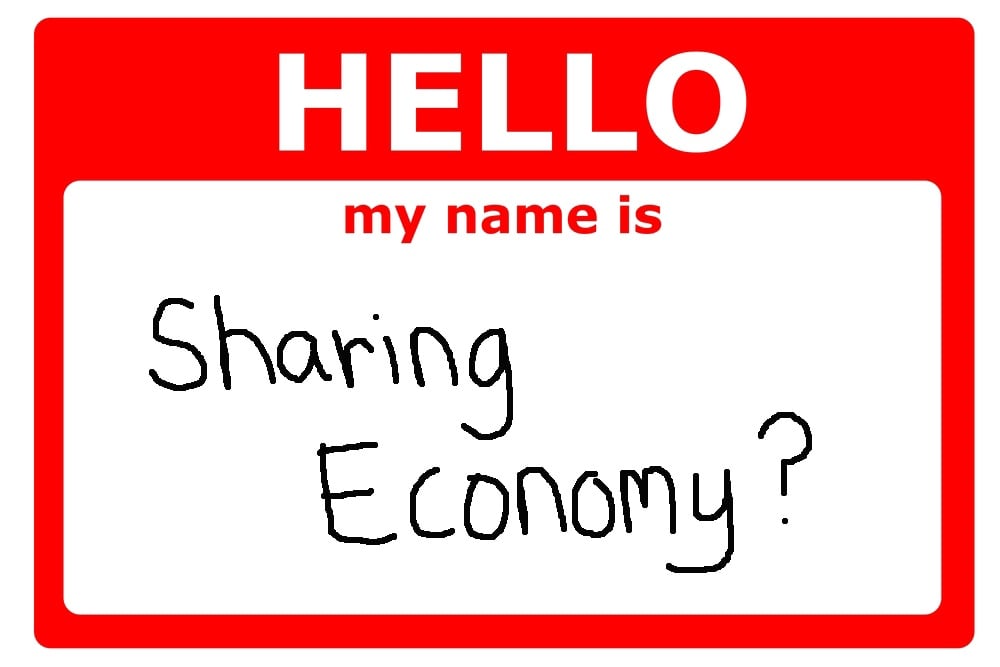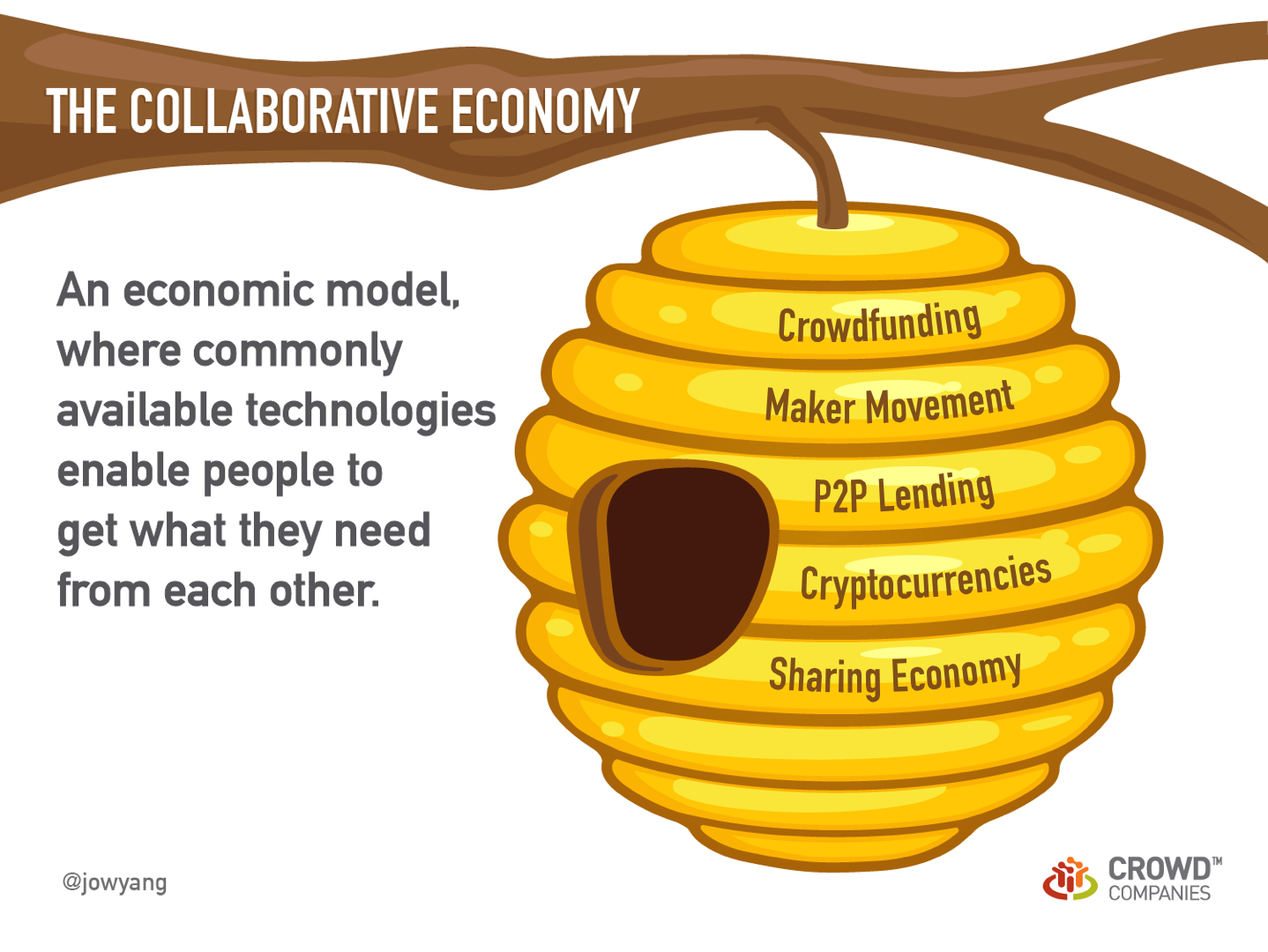Does the Sharing Economy Need a New Name? The US Government Says Yes
CJ Todd | June 7, 2016


In a recent article for Quartz, Alison Griswold (@alisongriswold) ridicules the US government for creating a new title to further explain the sharing economy. With all the different terms surrounding this new form of commerce, there’s no doubt people are getting confused; but is trying to further classify something that is hard to understand such a bad thing?
First, let me break down the new title. According to a document released June 3, the US Department of Commerce has proposed the term “digital matching firms” classified by these defining characteristics:
- Digital matching firms use information technology (IT systems), typically available via web-based platforms such as mobile “apps” on Internet-enabled devices, to facilitate peer-to-peer transactions.
- Digital matching firms rely on user-based rating systems for quality control, ensuring a level of trust between consumers and service providers who have not previously met.
- Individuals who provide services via digital matching platforms have flexibility in deciding their typical working hours.
- To the extent that tools and assets are necessary to provide a service, digital matching firms rely on the workers using their own.
The department also defined exceptions to new title -- “‘sharing’ firms that are not digital matching firms.” These include:
- Firms that provide online classifieds such as Craigslist do, in fact, match consumers with goods and service providers, but lack rating systems and also do not process transactions via their own digital platform.
- Firms that facilitate the matching of a service without facilitating a monetary transaction. Examples of these platforms include Couchsurfing, Freecycle, Maine Tool Library, Neighborgoods.
Sure, one can argue that another term is just muddying the water even more. But what do you really mean when you say “sharing economy?” Does that really explain this new form of commerce correctly? Thought leaders in the space seem to think not.

Jeremiah Owyang: “There are over 37 terms being used for this market, but the one that makes the most sense in terms of scope and accuracy is the Collaborative Economy... The popularized term, sharing economy, while a misnomer in it’s own right, is just a subset of the overall movement of P2P commerce.”
Rachel Botsman: “The space is getting muddy and the definitions are being bent out of shape to suit different purposes. So, do I think these terms have different meanings? Yes. Are their common core ideas that explain the overlap? Absolutely… Its growth and expanding nature are, for the most part, a good thing but we need clear definitions that will enable us to move forward with a common understanding.”
Arun Sundararajan: “It may be a consequence of the fact that the label is being used to describe a pretty broad range of things that don’t necessarily all look like each other.”
Living in San Francisco, and being immersed in the space, I am very familiar with what all the associated terms mean; and more importantly, why they exist. Phrases like peer-to-peer exchange, on-demand economy and gig-economy are meant to describe specific business models more granularly. Terminology like circular economy, collaborative economy, abundance economy and peer economy are meant to describe the whole umbrella of new business models more accurately than the “sharing economy.”
Because let’s face it, not many of the companies being classified actually share anything. Sure, Uber might allow passengers to share a route with another. Sure, Airbnb lets people share their homes with strangers. But isn’t the definition of sharing to give, not to sell? I think this is the reason the term “sharing economy” has rubbed so many people the wrong way and has caused thought leaders to stray away from it.
The truth of the matter is that “sharing economy” is the term that stuck. It has been supplanted in the minds of app users, bloggers, social media managers and mainstream media so much, that is the term they have been diffusing on a large scale for such a long time. However, it’s our duty as writers and thought leaders to classify the space in a way that people can understand, accept and adopt because it’s truly changing the way we consume for the better.
I believe Rachel Botsman has the clearest and most compelling outlook on this matter. She says, “The words used concern me less than how they are being defined, and the core meaning of the space being misunderstood. Definitions are hard, especially when they are trying to capture new ideas never expressed before. As Bertrand Russell famously once said: ‘Everything is vague to a degree you do not realize until you have tried to make it precise.’"
Interested in knowing more about partnering with platformOS?
Ensure your project’s success with the power of platformOS.